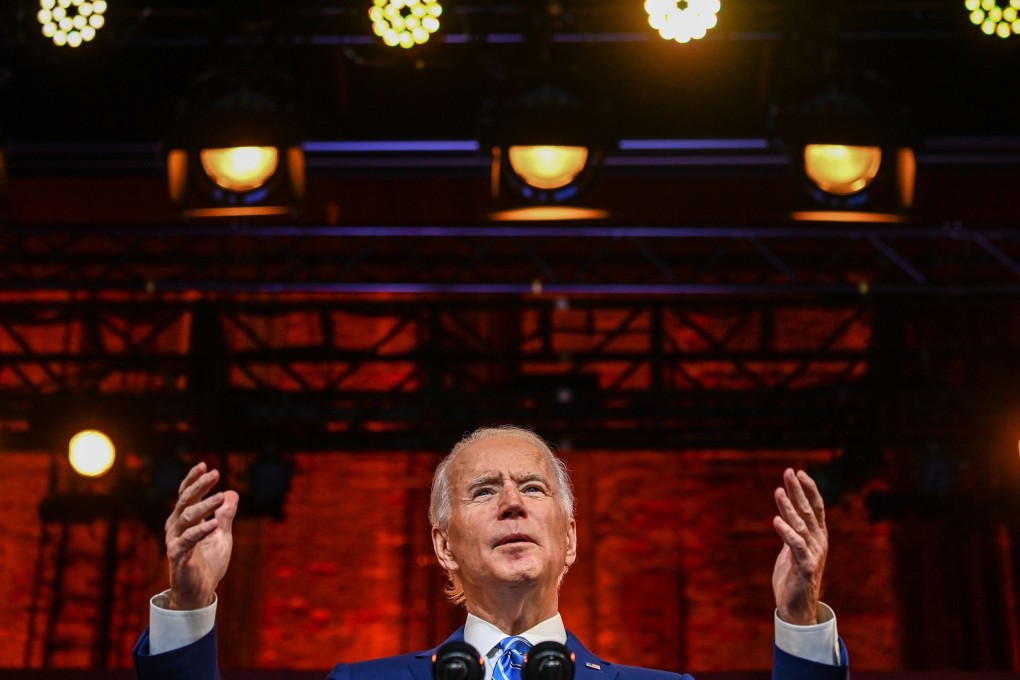US-China relations: Beijing sees chance for thaw in ties under Biden, but keeps expectations in check
- Debate over China-US ties has heated up in Beijing policy circles as the White House transitions to a Joe Biden administration
- Climate change and pandemic control are tipped as possible areas of bilateral cooperation, but there is still concern over decoupling

China is seeking to open new channels of communication with the incoming White House administration of President-elect Joe Biden, but some Chinese analysts have warned against unrealistic expectations that tensions can be easily resolved.
However, the two sides might have some room for bilateral cooperation in terms of coronavirus pandemic control and climate change, which will be helpful in preventing the world’s two largest powers from escalating into full-scale rivalry and threatening the global economy.
Speaking at the Caijing annual conference on Thursday, Zhang Baijia, former deputy director of the Party History Research Centre of the Communist Party Central Committee, said it was unlikely the Biden administration would take any “big action” to improve bilateral ties over the next two years, but there were areas to cooperate.
Biden’s ideas sound positive, but he would only be different in terms of tactics… We must not have high expectations
Climate change and pandemic control could receive high priority among a variety of complicated bilateral issues.